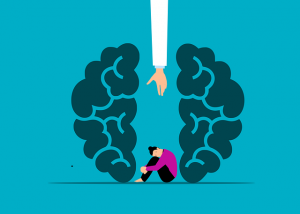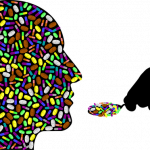If you’ve ever been anxious, you know how crippling it can be. Fear can grab you so firmly that you feel trapped with no way out. You may find yourself avoiding situations or activities that make you anxious, leaving you feeling imprisoned and isolated.
Is it feasible, however, to overcome the fear of anxiety? The answer is not simple, but many people can manage their anxiety and live full lives with the correct tools and assistance.
Living with anxiety can be a never-ending battle. It is more than just feeling apprehensive or unpleasant in particular situations; for many people, it is a chronic disorder that impacts every area of their lives. The good news is that effective therapies, ranging from counselling to medication to lifestyle adjustments, are available.
While there is no cure for anxiety, learning coping methods and building a support network can help you conquer your anxieties and regain control of your life. In this post, we’ll look at some of the ways people have dealt with worry and moved forward towards a brighter future.
Understanding Anxiety: Its Causes and Symptoms
 As the phrase goes, ‘fear is only as deep as the mind allows.’ Anxiety, on the other hand, is a mental condition caused by a variety of variables such as stress, trauma, or genetics. It can appear in several ways, such as excessive concern, panic episodes, or phobias.
As the phrase goes, ‘fear is only as deep as the mind allows.’ Anxiety, on the other hand, is a mental condition caused by a variety of variables such as stress, trauma, or genetics. It can appear in several ways, such as excessive concern, panic episodes, or phobias.
For those who suffer from anxiety, identifying triggers and developing effective coping methods are critical stages towards recovery. Identifying anxiety triggers is one of the keys to controlling it. These can differ from person to person, but popular examples include social situations, public speaking, and even specific scents or sounds.
Once these triggers have been discovered, one can take actions to prevent them or prepare for them when they occur. Mindfulness practises such as meditation or deep breathing exercises can also aid in emotion regulation and anxiety reduction.
It is vital to recognise that anxiety symptoms can be both physical and mental. During an episode, some people experience heart palpitations, sweating, or trembling, while others may feel overwhelmed and unable to focus. Seeking expert support from a therapist or psychiatrist can help you handle these symptoms in a healthy way.
Consistent work and determination are required to overcome anxious fears. While there is no quick answer, little steps towards minimising triggers and practising mindfulness practises can have a big impact on one’s mental health. Keep in mind that mending takes time and patience, but it is possible with the correct support system and tools.
Anxiety Disorders and Their Treatments
Understanding the causes and symptoms of anxiety is only the first step in overcoming the illness. Anxiety disorders can be crippling, making it difficult for people to function in their daily lives. It is important to remember, however, that anxiety is treatable, and that with the correct tools, one may learn to control and finally overcome it.
Cognitive behavioural therapy (CBT) is an effective anxiety treatment. This therapy focuses on identifying and changing negative ideas and beliefs that contribute to anxiety with positive ones. CBT also incorporates exposure therapy, which gradually exposes people to their fears in a secure environment, allowing them to gain confidence in dealing with them.
Mindfulness meditation is another strategy that has grown in popularity in recent years. Being present in the moment without judgement or distraction is what mindfulness entails. Individuals can learn to minimise tension and anxiety while enhancing their general well-being by focusing on breathing or other sensations.
While CBT and mindfulness meditation can both be helpful treatments for anxiety disorders, it is crucial to keep in mind that what works for one person may not work for another. Working with a mental health specialist to develop a personalised treatment plan that meets your needs is critical.
Overcoming anxiety can be a difficult path that demands patience and commitment. Individuals can learn to manage their symptoms and recover control of their lives by using evidence-based treatments such as CBT or mindfulness meditation. Anyone suffering from anxiety might discover hope for a better future with the correct support system and tools.
Anxiety Relief Therapy and Medication
The two most prevalent methods for reducing anxiety are therapy and medication.
Therapy is a sort of counselling that assists people in recognising and managing their concerns. Its goal is to teach people new coping strategies, such as mindfulness methods, to help them stay calm in stressful times.
Mindfulness practises entail focusing on the current moment without judgement. This practise can be beneficial for people who suffer from anxiety because it encourages them to focus on what they can control rather than what might happen in the future.
Deep breathing exercises and meditation can also help to lessen anxiety symptoms by slowing down the body’s physiological response.
Acupuncture, yoga, and massage treatment are among alternative therapies that may help with anxiety problems. These therapies work by focusing on specific parts of the body that are prone to stress and tension.
Acupuncture, for example, involves placing tiny needles into precise places throughout the body’s meridians in order to enhance energy flow and relieve tension.
To summarise, there are numerous methods for reducing anxiety symptoms. While many people prefer medication, counselling and alternative therapies provide additional options for those seeking relief.
Mindfulness techniques allow you to regulate your anxious thoughts and feelings in real time, whilst alternative therapies try to heal the underlying imbalances that cause anxiety symptoms.
Choosing the correct combination of therapy is critical to overcoming fear and living a satisfying, worry-free life.
Anxiety-Relieving Lifestyle Changes and Self-Care Strategies
Many people suffer from anxiety as we continue to embrace the fast-paced nature of modern life. While this condition can be severe, there are a number of beneficial lifestyle adjustments and self-care practises that can aid with symptom management.
Mindfulness practises are one of the most effective methods for dealing with anxiety. Meditation and deep breathing exercises, for example, can help calm a racing mind and induce relaxation. Individuals can alleviate anxiety by focusing on the current moment and letting go of thoughts about the future or the past.
Exercise is another important aspect of anxiety management. Regular physical activity has been shown to alleviate anxiety symptoms by producing endorphins, which are natural mood boosters, in the brain. Furthermore, exercise relieves stress and tension, providing a sense of well-being.
Aside from these main tactics, there are various more self-care practises that may be beneficial to persons suffering from anxiety. These include eating a good diet, getting enough rest, and participating in creative hobbies or activities that offer you delight.
Incorporating these self-care practises into daily life may require time and effort, but the benefits in mood and overall well-being can be tremendous. Individuals can learn to manage their anxiety effectively over time through constant practise and patience, rather than relying primarily on medicine or therapy.
Creating a Support System and Moving Forward Confidently
It is never simple to deal with fear and worry, but it is possible to overcome them. Building a solid support system is one method to accomplish this. Surround yourself with individuals who are upbeat, encouraging, and encouraging. Discuss your fears and anxieties with them, and ask their advise on coping techniques that have worked for them.
Mindful meditation is another effective approach to deal with fear and anxiety. This technique entails focusing on the present moment without making any judgements. Regular mindfulness practise will teach you to become more aware of your thoughts and emotions without becoming engrossed in them.
Positive affirmations can also help you overcome your fears and anxieties. Throughout the day, tell yourself optimistic affirmations like ‘I am strong’ or ‘I can manage everything that comes my way.’ These affirmations can help you keep focused on your strengths while also providing you with the confidence you need to move forward.
Remember that conquering fear and anxiety is a gradual process. Be gentle with yourself as you process your emotions, and don’t be hesitant to seek professional assistance if necessary.
With the correct support system and coping skills such as mindful meditation and positive affirmations, you can confidently move forward towards a brighter future.
By following these actions towards recovery, you will notice that your fear and worry will lessen over time. You’ll feel more confidence in your capacity to deal with life’s obstacles, even if they appear daunting at first.
Most importantly, you’ll be able to enjoy life again without being paralysed by dread or anxiety!
How Long Does It Take To Get Over Anxiety?
Overcoming anxiety is a time-consuming and labor-intensive process. While there is no set timetable for overcoming anxiety, there are ideas and practises that can help make the road smoother.
One predicted resistance to this procedure is the assumption that it is impossible to eliminate worry altogether. However, the goal is not to completely remove anxiety, but rather to learn how to handle it in a healthy way.
Deep breathing exercises, mindfulness meditation, cognitive-behavioral therapy, and medication, when needed, are some options. It is critical to remember that everyone’s anxiety journey is unique, and what works for one person may not work for another.
However, with patience and perseverance, it is possible to cope with anxiety and live a full life.
Is Anxiety Completely Curable?
Anxiety may be a crippling condition that affects a large number of people.
While there is no cure for anxiety, there are treatments that can help control symptoms and improve quality of life.
Deep breathing, meditation, and yoga have all been proved to be useful in decreasing anxiety levels.
Another therapeutic option is cognitive behaviour therapy, which can teach people how to recognise and change negative thought patterns that contribute to their anxiety.
Individuals can learn to manage their anxiety and live fulfilled lives by combining mindfulness practises and counselling.
Is Medication the Only Treatment for Anxiety?
So you’re worried, right? Simply taking a medication will solve all of your issues! That is, at least, what the pharmaceutical business would have you believe.
Is medication, however, the only answer to anxiety? Certainly not. Alternative therapy and lifestyle changes can be just as successful as, if not more effective than, pharmaceutical treatments in treating anxiety.
There are several non-medication solutions available for persons suffering from anxiety, ranging from mindfulness meditation to acupuncture. Additionally, lifestyle improvements such as regular exercise, a balanced diet, and adequate sleep can significantly alleviate anxiety symptoms.
Don’t allow Big Pharma convince you that medication is the only solution; instead, look into other possibilities and take charge of your mental health.
Can a traumatic event that occurred years ago cause anxiety?
Trauma therapy can be an effective treatment for anxiety caused by a traumatic incident that occurred years ago.
Mindfulness, breathing exercises, and cognitive behavioural therapy (CBT) can also help with symptom management.
It’s critical to remember that everyone’s trauma experience is unique, and there is no one-size-fits-all strategy to healing.
Seeking help from a mental health expert can provide people the tools they need to process their feelings and move ahead in a healthy way.
How Do I Know Whether My Anxiety Is Getting Better Or Worse?
Tracking progress is an important element of anxiety management. It’s critical to keep track of how you’re feeling on a daily basis and to document any changes or improvements.
Coping mechanisms are very important in managing anxiety symptoms. Deep breathing exercises, mindfulness practises, frequent exercise, and seeking help from loved ones or a therapist are examples of these.
You may begin to detect patterns in your anxiety levels as you continue to practise these coping methods and measure your progress.
If your symptoms worsen despite your efforts, it is critical that you get expert care.
Remember that recovery is a journey, and progress is not always linear, but it is possible to manage anxiety effectively with the correct support and skills.
Overcoming anxiety can be a difficult effort, but it is not impossible. Everyone’s path to healing is unique, requiring patience, perseverance, and professional assistance.
Progress can take time, so don’t give up if you don’t notice results right away. Remember that rehabilitation is a process, and setbacks are to be expected.
Seeking therapy, engaging in self-care activities, and, when necessary, using medication are all acceptable choices for anxiety management. Anxiety can be caused by a variety of factors, including heredity, environmental stressors, or traumatic events.
However, with determination and the correct resources, you can acquire coping skills to effectively manage your anxiety symptoms. Don’t allow fear keep you from seeking treatment; take the first step towards an anxiety-free life today.









